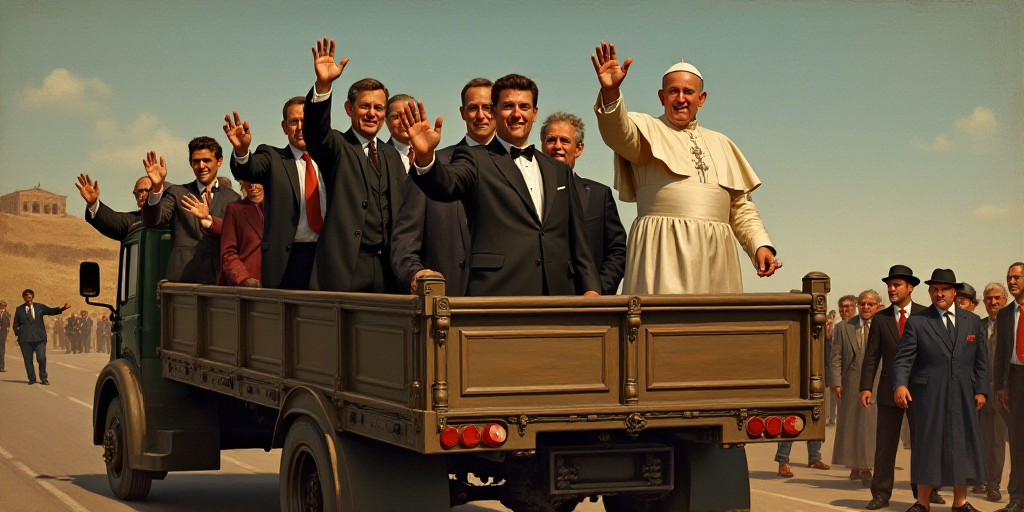Background and Significance
Pope Francis, the first Latin American leader of the Roman Catholic Church, passed away at the age of 88, as announced by the Vatican in a video statement on Monday. His death marks the end of a often tumultuous papacy marked by deep divisions, during which he attempted to reform an institution rooted in the past.
Jorge Mario Bergoglio, born in Buenos Aires, Argentina, was elected pope on March 13, 2013. Known for his concern for the poor, he surprised many observers who saw him as an unlikely candidate for such a high-ranking position within the Church. He sought to project simplicity in his grand role, never taking possession of the ornate papal apartments in the Apostolic Palace, citing his preference for a communal living environment for psychological well-being.
He inherited a Church plagued by sexual abuse scandals and internally divided, with clear mandates to restore order. However, as his papacy progressed, he faced fierce criticism from conservatives accusing him of undermining cherished traditional values, while also earning the ire of progressives who believed he should have done more to reform an institution with over 2,000 years of history.
Papacy and Accomplishments
Despite the challenges, Pope Francis became a global superstar, drawing crowds during his numerous foreign trips where he tirelessly promoted interreligious dialogue, peace, and advocated for the marginalized, including migrants. His efforts earned him international acclaim and respect.
A unique occurrence in modern times, during much of Pope Francis’ papacy, there were two men dressed in white within the Vatican. This was due to his predecessor, Benedict XVI, choosing to continue living in the Holy See after his unexpected resignation in 2013, paving the way for a new pontiff.
Benedict XVI, a hero of the conservative cause, passed away in December 2022, leaving Pope Francis as the sole figure on the papal stage.
Succession and Future Impact
Pope Francis appointed nearly 80% of the cardinal electors who will choose his successor, increasing the likelihood that his successor will continue with his progressive policies despite strong opposition from traditionalists.
Reactions to His Death
World leaders reacted to Pope Francis’ death by praising his efforts to reform the Church and offering condolences to the 1.4 billion Catholics worldwide.
Ursula von der Leyen, President of the European Commission, stated, “He inspired millions of people far beyond the Catholic Church with his humility and pure love for the less fortunate.”
José Ramos-Horta, President of East Timor, a country Pope Francis visited in September 2024 as part of his longest foreign trip, said that the pope “leaves a profound legacy of humanity, justice, and fraternity.”
Key Questions and Answers
- Who was Pope Francis? Jorge Mario Bergoglio, an Argentine cardinal who became the first Latin American leader of the Roman Catholic Church.
- What were some of his key accomplishments? He attempted to reform the Church, promoted interreligious dialogue and peace, advocated for marginalized groups, and became a global figure during his papacy.
- What challenges did he face? He faced criticism from conservatives and progressives alike, with accusations of undermining traditional values or not doing enough to reform the Church.
- What is the likelihood of his successor continuing his progressive policies? Pope Francis appointed nearly 80% of the cardinal electors, increasing the possibility that his successor will maintain progressive policies.






